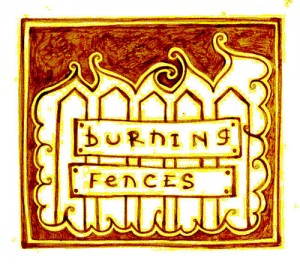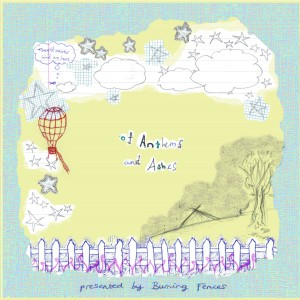
Monks who chant less than the entire Psalter, with canticles, each week are slothful in their service to God.
How much should I be praying?
For ten weeks now I have been praying and meditating on the place and structure of prayer in the life of a monastic community. During this time I have been asking myself, whether it has been communicated on this journal or not, what place does prayer take in my life? The answer has often been: I must try harder. This is a common response to prayer and Bible reading to many Christians, ordained, lay, within religious orders or not. It is easy to compare ourselves to others or to our perception to others or , even worse, to an impossible ideal. There’s a proverb within the church which says,
Prayer is like sex. Most people lie about how much they’re doing it and how well it is going.
It is easy to compare ourselves to others and to beat ourselves up on how lazy and difficult we find prayer, reading the Bible, service to the poor, etc. We do it instinctively. If it’s not the person sat next to you in church or your own priest or lay workers then there’s a renowned saint (for me it’s people like Shane Claiborne!) who we project onto heavenly virtues and exult them to ‘super-Christian’. I am reminded of Jesus’ last exchange with Peter in John’s gospel,
Peter turned and saw the disciple whom Jesus loved following them; he was the one who had reclined next to Jesus at the supper and had said, “Lord, who is it that is going to betray you?” When Peter saw him, he said to Jesus, “Lord, what about him?” Jesus said to him, “If it is my will that he remain until I come, what is that to you? Follow me!” (John 21:20-22)
What is that to you?
Those words should ring in our ears when we find ourselves falling into a self-destructive cycle of despair. When you find yourself saying,
I should be reading the Bible as much as [insert name of idealised version of a fellow Christian here].
Or,
I wish I had their prayer life. They’re always praying.
Having said that we must be careful also to be realistic with our time. Most of us could prioritise prayer and Bible reading better but that’s the truth of priorities; you prioritise what you prioritise. We need to firstly acknowledge what we do prioritise and why. What is it that you consider more important than prayer? What do you turn to before you turn to prayer or reading the Bible? Why does this, or ‘these’, things take precedent? Are they easier? Are they more enjoyable?
For me, it’s TV, social media and work.
I justify TV because it’s important to rest and wind down after work. I justify social media because it’s important for me to know what’s going on in the lives of my friends, family and communities. I justify work because I’ve been called to it by God and people are relying on me to support them in their lives. But that’s all these priorities are; justifications. On their own and in isolation there’s nothing wrong with these activities and, yes, they need to be done and be a part of a balanced life but the reality is I minimise my time in prayer and reading the Bible in favour of doing those three things.
Added to that I lie to myself about my prayer life. I find myself saying,
I pray while I…(e.g. look at my Twitter stream/Facebook wall).
At times I do but that is not always a deliberate thing, a dedicated time set aside to speak with God. Most of the time it’s a one way dictation of things He has to do for me. The same is true for reading the Bible; I say,
I read the Bible today while I prepared for… (e.g. a sermon).
That’s not the kind of reading that feeds the soul; that’s work. I read it with a particular energy; I’m listening for that teaching point, that image which will help people to connect with the passage. I don’t always find myself asking those personal questions like,
What is God saying to me in this?
Don’t get me wrong, I do ok. At morning and evening prayer (and at times, midday prayer) I engage with Scripture on that level and I pray for a dedicated time but even these times are dry and distracted. These times are dedicated and disciplined for the very reality, for me, that I just won’t ensure I am praying as much as I should. This is not about comparing with those dedicated intercessors and pray-ers in the Body of Christ but a basic level for any disciple to remain rooted in God.
I’d suggest to ‘normal’, working (paid and unpaid) Christians engaging in the world, that at least one regular time of prayer a day is minimum. That time of prayer, what ever form it takes, should be undistracted and deliberate for a minimum of fifteen minutes. This is not an excessive amount of time. Consider how long it takes to drink a cup of tea? When you start to consider a regular time when, presently, you are doing nothing, you will begin to realise how much you fill your days with all manner of tasks without even considering the time you dedicate to it. I catch myself on a regular basis, unconsciously walking upstairs into my office and turning on the computer without knowing why. Habit and routine take over and I tell myself I’m busy and I create work for myself. It’s easy to do.

Rhythms of prayer
We who live in the world all need to acknowledge that it would be difficult, if not impossible, to dedicate the kind of time that a Benedictine community spends in prayer. If we add up the typical time spent in prayer for such a community it would be about 3 1/2 hours in Divine Office/communal set prayers then an hour of prayerful reading of Scripture and half an hour silent personal prayer we can see that a monk should be praying 5 hours a day. Be careful not to start comparing yourself and beating yourself up about how ‘lazy’ you are! Remember that that 5 hours is split up and goes into the night but even that would have a big impact on our energy levels if we are also trying to hold down a full time, or even part time job, possibly a family and commitments to a Church community.
For a New Monastic community who have to balance the everyday life of family and employment with prayer and service, a more realistic rhythm of prayer should be established. This will be different for each expression and for the lives of those involved in such communities but it will require, like that of St. Benedict’s, a framework which will hold the community accountable; a framework and guidance as to how much is possible and helpful for prayer to be a priority.
As I said, I find a set time time in the morning, before I start work, and one in the evening just as people are finishing their work. My work often stretches into the evening so that evening prayer is praying that the work of many in my communities will bear fruit for God’s Kingdom. A commonality between such ‘monastic’ communities is an established morning prayer either said at the same time by all the members and, if possible, in the same place. Some have a Night Prayer others an evening, some have midday prayers but each is flexible to help and guide the community to have prayer woven into the routine.
After about five years of a rhythm of prayer (which has changed and evolved) I feel odd when I am not praying at 8.30am a set Office (be that Common Worship or Celtic Daily Prayer). My wife knows that at 5.30pm I will be praying and we have set dinner time around that fact. I schedule meetings around this time and say to people who ‘need’ me,
I’m sorry I have a meeting then.
On occasions I need to adapt and move stuff but that must be done prayerfully and with consideration.
Starting a day with set prayers, for me who is not a morning person, is useful as I don’t need to be ‘up for it’. I turn up and I am quiet with god. I find I repeat the same quiet prayer before I begin,
Oh Lord, I am so tired, give me strength for today.
I then use this time to go through my day and as I remember all the things I have planned I invite God into them.
Lord, will you be with me as I meet with…
Lord, what is it that you want me to say to…
Lord, help me face this difficult challenge.
I find, as I perform the tasks of the day I remember my prayer that morning and repeat it before I begin, as I do it and after it is done. These are not dedicated times of prayer just quick short repetitions remembering God with me as I go about my business.
Reflection
This part of my blog has slipped at times from what I had intended it to be. I had wanted this section to be a possible practical step I could take to move from theory to action. This week I want to ponder what this rhythm of prayer looks like in community.
In my parish we offer morning and evening prayer for anyone. Both times are not easy for people to make. There are many reasons why people can’t come but I suspect that anytime would be difficult because rhythms of prayer are not understood and challenge people’s priorities. I sit with one or two others at both times. We have a routine and we are flexible when necessary. I would love to build a community that came together each day to dedicate themselves to prayer together.
To do this in a parish would require a dedicated season studying and teaching on the subject and then a focussed discussion on what that prayer would look like for the members of the community there. I don’t think we ask what prayer looks like as the Body of Christ on a daily basis. This challenges our Sunday focussed life together and also what we see our role in society as.
Lord, call your people to yourself each day to hear and receive all we need from you. Take us from our lives and shape us into disciples, placing us back into those lives changed and equipped for the building up of your Kingdom in the places we are sent.
Come, Lord Jesus.
 I have had the privilege of being welcomed into a community over the last year which has had an ongoing and deeply transformative impact on me and my vocation as an ordained priest. The community are mainly in their twenties and would, at a cursory glance, be classified as ‘arty’ intellectual types, although this is not entirely true; not that they are not either of those things but that which unites this group isn’t those two general categories. It is only in the last month or so that I have begun to grasp the ‘charism’, the ‘je ne sais qua’, of Burning Fences.
I have had the privilege of being welcomed into a community over the last year which has had an ongoing and deeply transformative impact on me and my vocation as an ordained priest. The community are mainly in their twenties and would, at a cursory glance, be classified as ‘arty’ intellectual types, although this is not entirely true; not that they are not either of those things but that which unites this group isn’t those two general categories. It is only in the last month or so that I have begun to grasp the ‘charism’, the ‘je ne sais qua’, of Burning Fences. Before I stumbled through the doors one cold December night, this community had been meeting, singing and telling stories for a year or more. They had produced a CD of songs which they had developed entitled ‘Of Anthem and Ashes’. The images that were resonating with them then and remain reverberating through our times together are phoenix like resurrections; songs sung in the rubble, new plants breaking through concrete. These images have always resonated with me and it’s why I know I am a ‘fence burner’.
Before I stumbled through the doors one cold December night, this community had been meeting, singing and telling stories for a year or more. They had produced a CD of songs which they had developed entitled ‘Of Anthem and Ashes’. The images that were resonating with them then and remain reverberating through our times together are phoenix like resurrections; songs sung in the rubble, new plants breaking through concrete. These images have always resonated with me and it’s why I know I am a ‘fence burner’. The times when Church is most frustrating, for me, is in the ‘necessary organization’. What irks me is the lack of convincing Biblical precedent. The Temple system failed and yet here we are in the 21st century rebuilding it. I get it, organic is messy and uncontrollable, unpredictable but it’s how the world functions. We human beings are devastating when we control and tinker with the organic creation. We’ve tried to organize the world and what we discover is we’re trapped in boxes which do not fit nor encourage us to flourish in the ways in which we should.
The times when Church is most frustrating, for me, is in the ‘necessary organization’. What irks me is the lack of convincing Biblical precedent. The Temple system failed and yet here we are in the 21st century rebuilding it. I get it, organic is messy and uncontrollable, unpredictable but it’s how the world functions. We human beings are devastating when we control and tinker with the organic creation. We’ve tried to organize the world and what we discover is we’re trapped in boxes which do not fit nor encourage us to flourish in the ways in which we should.

